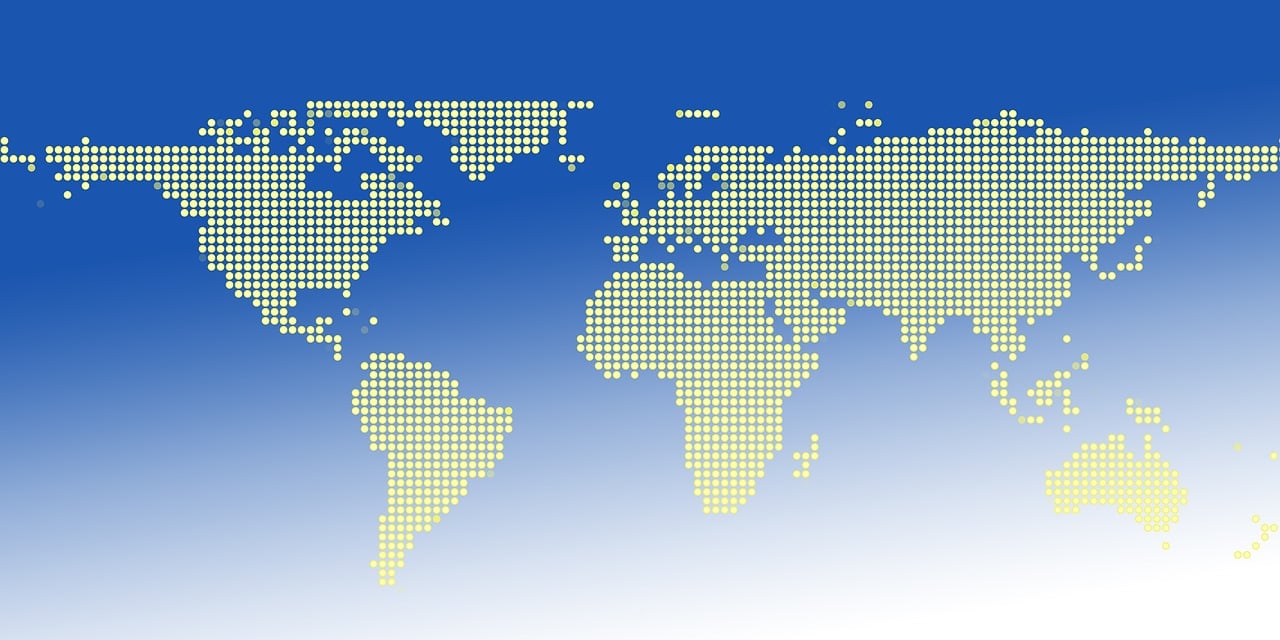
The Impact of the Anti-Terrorism Act on Philippine Democracy: An In-Depth Study
The Anti-Terrorism Act of 2020, formally known as Republic Act No. 11479, has stirred significant controversy and debate within the Philippines and beyond. This legislation, intended to bolster the nation’s defense against terrorism, raises crucial questions about its implications on democratic principles and human rights. This blog post explores the multifaceted impact of the Anti-Terrorism Act on Philippine democracy, examining its legal, political, and social dimensions.
Understanding the Anti-Terrorism Act
Enacted in July 2020, the Anti-Terrorism Act aims to address the persistent threat of terrorism in the Philippines. The law expands the definition of terrorism, strengthens measures for surveillance and detention, and establishes the Anti-Terrorism Council (ATC), which holds significant authority in designating individuals and groups as terrorists.
Proponents argue that the law is essential for national security, especially in a country that has experienced numerous terrorist attacks over the years. However, critics contend that the Act’s broad definitions and extensive powers may lead to abuse and threaten civil liberties.
Legal Implications and Concerns
The legal implications of the Anti-Terrorism Act are significant. One of the primary concerns is the vague and broad definition of terrorism, which could potentially encompass legitimate dissent and criticism of the government. This ambiguity allows for a wide interpretation, raising fears of misuse against political opponents and activists.
Another critical aspect is the power of warrantless arrests and extended detention. The Act allows law enforcement to detain suspects for up to 24 days without a judicial warrant, which surpasses the standard legal limits for detention. This provision has drawn criticism from human rights organizations, which argue that it violates constitutional protections and international human rights standards.
Political Repercussions

The political landscape in the Philippines has been deeply affected by the enactment of the Anti-Terrorism Act. The legislation has intensified the polarization between government supporters and opposition groups. Many politicians, activists, and legal experts have voiced concerns about the potential for the law to be used as a tool for political repression.
The Act has also prompted numerous legal challenges, with petitions filed before the Supreme Court questioning its constitutionality. These legal battles underscore the deep divisions within Philippine society and highlight the ongoing struggle to balance security and freedom.
Social Impact and Public Perception
The social impact of the Anti-Terrorism Act is equally profound. Public perception is divided, with some viewing the law as a necessary measure for security, while others see it as a threat to civil society. The fear of being wrongly accused or targeted has created an atmosphere of uncertainty and apprehension among activists, journalists, and ordinary citizens.
Civil society organizations have been particularly vocal in their opposition to the law. They argue that it undermines the freedom of expression and assembly, essential components of a vibrant democracy. The law’s potential to stifle dissent is seen as an affront to the democratic ideals that the Philippines has long championed.
Case Studies and Examples
Several real-world examples illustrate the contentious nature of the Anti-Terrorism Act. Notably, the designation of certain groups as terrorist organizations has sparked significant debate. Critics argue that some of these designations are politically motivated, aimed at silencing opposition rather than addressing genuine security threats.
Furthermore, instances of activists and journalists being arrested or threatened under the pretext of the Anti-Terrorism Act have raised alarm among human rights advocates. These cases highlight the potential for the law to be used as a tool for political persecution, rather than a means to combat terrorism effectively.
International Perspectives
The international community has also weighed in on the Anti-Terrorism Act, with various organizations expressing concern about its implications for human rights. The United Nations, for example, has voiced apprehensions about the law’s compatibility with international human rights obligations, urging the Philippine government to ensure that its implementation respects fundamental freedoms.

Moreover, global human rights organizations continue to monitor the situation, advocating for reforms that would align the law with democratic principles. This international scrutiny underscores the broader relevance of the Anti-Terrorism Act and its potential impact on the Philippines’ standing in the global community.
Conclusion: Balancing Security and Liberty
The Anti-Terrorism Act of 2020 presents a complex challenge for Philippine democracy. While the need to address terrorism is undeniable, the law’s potential to infringe on civil liberties and democratic principles cannot be overlooked. The ongoing legal battles and public debates reflect the nation’s struggle to find an equilibrium between ensuring security and safeguarding freedom.
As the Philippines navigates this delicate balance, it is crucial for lawmakers, civil society, and the judiciary to engage in meaningful dialogue and ensure that measures taken in the name of security do not erode the democratic foundations of the nation. Ultimately, the true test of the Anti-Terrorism Act will lie in its implementation, and whether it can effectively protect the country without compromising the very freedoms it seeks to defend.
For more information on this topic, you may refer to resources from the Amnesty International and the United Nations.
Future Implications and Reforms
The future implications of the Anti-Terrorism Act depend significantly on the political will of the Philippines’ leaders and the active participation of its citizens. Ongoing scrutiny from both domestic and international actors is crucial to ensure that the law’s implementation aligns with democratic norms and respects human rights.
Legislative and judicial reforms may be necessary to address the concerns raised by various stakeholders. For instance, clearer definitions of terrorism and stricter safeguards against arbitrary arrests could help alleviate fears of abuse. Additionally, establishing a mechanism for independent oversight of the Anti-Terrorism Council’s activities could enhance transparency and accountability.

Engaging civil society in a constructive dialogue is also essential. Civil society organizations, with their grassroots connections and advocacy expertise, play a pivotal role in holding the government accountable and ensuring that human rights remain at the forefront of policy discussions. Their involvement in the legislative process can help bridge the gap between security measures and civil liberties.
The Role of Media and Public Discourse
The media’s role in shaping public discourse on the Anti-Terrorism Act cannot be overstated. By providing balanced reporting and diverse perspectives, the media can facilitate informed discussions and empower citizens to engage critically with the issues at hand. Investigative journalism can uncover potential abuses and highlight the stories of those affected by the law, thereby fostering greater transparency.
Public discourse, fueled by social media and community forums, serves as a barometer of societal attitudes towards the Anti-Terrorism Act. Engaging in open, respectful dialogues can help reduce polarization and promote a shared understanding of both security needs and democratic values. Encouraging diverse voices in these conversations ensures that marginalized groups are heard and considered in policy-making processes.
Comparative Analysis: Lessons from Other Nations
Examining the experiences of other nations with similar legislation can provide valuable insights for the Philippines. Countries like the United States and the United Kingdom have enacted anti-terrorism laws that have faced criticism for their impact on civil liberties. Analyzing their successes and challenges can inform potential reforms and implementation strategies in the Philippine context.
For instance, the USA PATRIOT Act has been a subject of extensive debate in the United States, with ongoing discussions about balancing national security and privacy rights. The UK’s counter-terrorism laws, similarly, have prompted calls for reforms to address overreach and enhance oversight.
By learning from these examples, the Philippines can refine its approach to counter-terrorism, ensuring that security measures are effective and proportionate to the threats faced, while upholding democratic principles.
Conclusion: Navigating a Complex Landscape

The Anti-Terrorism Act represents a critical juncture for the Philippines as it seeks to navigate the complex landscape of security and democracy. As the nation grapples with the law’s implications, it must remain committed to its core democratic values, ensuring that efforts to combat terrorism do not come at the expense of human rights and civil liberties.
Continued vigilance, active civic engagement, and a commitment to transparency and accountability are essential in shaping a future where security and democracy coexist harmoniously. By fostering an environment of trust and cooperation, the Philippines can emerge stronger, with a legal framework that genuinely protects its citizens while honoring the democratic ideals that have long defined its identity.
Engagement with International Bodies
Engagement with international bodies is crucial for the Philippines as it addresses the challenges posed by the Anti-Terrorism Act. Collaborating with organizations such as the United Nations and the Association of Southeast Asian Nations (ASEAN) can provide opportunities for dialogue and support in aligning the law with international human rights standards.
Participation in international forums and workshops can help Philippine policymakers and stakeholders learn from global best practices in counter-terrorism while ensuring that human rights are not compromised. Furthermore, international cooperation in intelligence sharing and capacity building can enhance the effectiveness of counter-terrorism efforts, reducing the reliance on measures that may infringe on civil liberties.
Strengthening Judicial Oversight
Judicial oversight plays a pivotal role in ensuring that the Anti-Terrorism Act is enforced justly and fairly. Strengthening the judiciary’s capacity to review cases related to terrorism can prevent potential abuses and ensure that individuals’ rights are protected. Providing judges and legal professionals with specialized training in counter-terrorism law and human rights can enhance their ability to adjudicate complex cases effectively.
Moreover, establishing independent bodies or commissions to review the implementation of the Anti-Terrorism Act can add an additional layer of oversight. These bodies should have the mandate to investigate complaints, review the actions of the Anti-Terrorism Council, and make recommendations for policy reforms where necessary.

Public Education and Awareness
Educating the public about the provisions of the Anti-Terrorism Act and their rights under the law is essential for fostering a well-informed citizenry. Public awareness campaigns can demystify the law, dispel misinformation, and empower citizens to engage constructively in discussions about security and democracy.
Educational initiatives can include workshops, seminars, and online resources that explain the law’s implications and provide guidance on how individuals can protect their rights. Encouraging public participation in policy-making processes can also strengthen democratic governance and ensure that diverse perspectives are considered in shaping future reforms.
The Role of Technology in Counter-Terrorism
Technology plays an increasingly important role in modern counter-terrorism efforts. The use of advanced surveillance tools, data analytics, and artificial intelligence can enhance the ability of law enforcement to detect and prevent terrorist activities. However, these technologies also raise significant privacy and ethical concerns.
Ensuring that technological tools are used responsibly and transparently is crucial. Implementing robust data protection measures and establishing clear guidelines for the use of surveillance technologies can prevent potential abuses and protect individuals’ privacy rights. Engaging technologists, ethicists, and civil society in discussions about the responsible use of technology in counter-terrorism can help balance security needs with privacy concerns.
Final Thoughts
The Anti-Terrorism Act of 2020 remains a contentious issue in the Philippines, reflecting the broader global challenge of balancing security with liberty. As the country continues to grapple with the implications of this law, it is essential to remain vigilant in protecting democratic values and human rights.
By fostering open dialogue, strengthening oversight mechanisms, and engaging with international and domestic stakeholders, the Philippines can navigate this complex landscape effectively. Ultimately, the success of the Anti-Terrorism Act will be measured not only by its ability to prevent terrorism but also by its respect for the principles of justice, equality, and freedom that underpin a thriving democracy.



